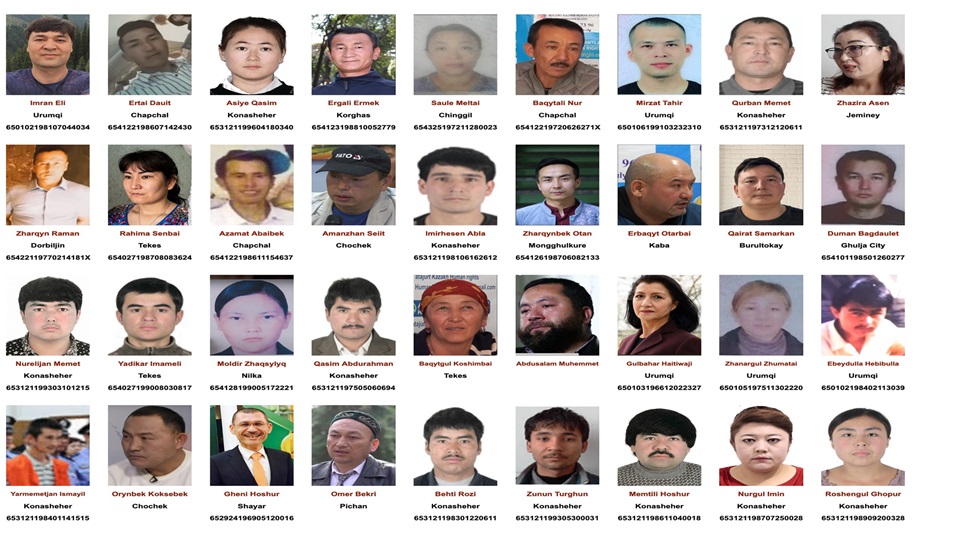UN Slams China’s Human Rights Record: Beijing Refuses to Implement Reforms
Share

Cocking a snook at word opinion, Beijing has rejected recommendations of the United Nations Human Rights Council report to end human rights abuses in the Xinjiang Autonomous Region and in other parts of China.
At the UNHRC session in Geneva in last July, China has blatantly rejected the UNHRC report of 2022 which had said the detention of Uighur Muslims in the Xinjiang region could constitute crimes against humanity. The report was published by none other than former U.N. Human Rights chief Michelle Bachelet.
At the Geneva meeting, China also rejected recommendations from Western countries for greater freedom for people in Hong Kong and a stop to the human rights abuses in Tibet and in Xinjiang; dismissing recommendations to end these abuses.
According to reports from Geneva, the Chinese government issued blanket denials in the face of well-documented instances of rights violation in Xinjiang, Tibet, Hong Kong and across mainland China. China also rejected all calls to implement the recommendations of the landmark 2022 U.N. report on Xinjiang, dismissing the well-founded report as “illegal and void.”
Instead, China lobbied some of the countries beholden to Beijing to praise the human rights records of China and to raise some not so consequential points of criticism; and, playing to the gallery, accepted them.
The UNHRC session at Geneva was the final phase of a process of review of its report in 2022, lambasting China on its human rights record in Xinjiang. In this period, Beijing had strived to fend off criticisms and denied any human rights abuses. All countries which are members of the U.N. have to undergo a review of their human rights records periodically under the Universal Periodic Review.
British Ambassador to the Geneva meeting Simon Manley complained to the UNHRC that Beijing had rejected each and every of the British recommendations, including a call for an end to the persecution of the Uighur community and for the repeal of the draconian National Security Law in Hong Kong.
U. S. Human Rights Ambassador at the Geneva meeting Michele Taylor too voiced disappointment at the refusal of China to take action against human rights abuses in Xinjiang, Tibet, Hong Kong and other places. “China has refused to take action amid consistent calls from the international community to respect human rights and fundamental freedoms and has rejected numerous constructive recommendations,” Taylor said. “China’s abuses constitute a rejection of U.N. assessments and recommendations and violate or undermine international commitments.”
President of UNHRC Omar Zniber said China had accepted nearly 70 percent of the more than 400 recommendations for reforms in its human rights records that had been received as part of the U. N. review. Critics of China said, however, that the high acceptance rate of 70 percent of the recommendations was misleading. China had lobbied some non-Western countries to praise its human rights records by asking them to make some “constructive” recommendations. The representative from South Africa, for instance, asked China to strengthen its anti-domestic violence law. Some Western diplomats have since alleged that China had “stacked the deck” by investing political capital in quelling criticism. The envoy of Gambia even praised the progress made in China in the area of human rights.
The Geneva Director of Human Rights Watch has called it “utterly shameful” that many countries had praised the human rights records of China. Commenting on the proceedings of the meetings, the Human Rights Watch has said China cunningly accepted at the meeting a few of the less direct recommendations that offered no rebuke but requested for the protection of rights. Among these were Gambia’s recommendation to “reinforcing the safeguarding of rights of ethnic and religious minorities by promoting the preservation of cultural identities,” Indonesia’s to “strengthen protection of freedom of religion or belief” and Estonia’s to “enable all members of the civil society freely to engage with international human rights mechanisms without fear of intimidation or follow-up.”
The Human Rights Watch has correctly observed that these countries should follow up on these recommendations and push for their implementation. Even that would mean a reversal of the current policies of the Chinese government. In Tibet, for instance, China is systematically attempting to obliterate the cultural and religious identity of ethnic Tibetans and to merge the Tibetan identity with the Han Chinese identity. Tibetan children are being forced to join colonial-style boarding schools where they are taught in Mandarin, are brought up in Han Chinese ways of life. They are not even allowed to visit their families during holidays so that they forget their Tibetan identity. In the Buddhist monasteries in Tibet, the occupying Chinese force has all but crushed the right of the Tibetans to practice their religion freely.
The stories of violation of human rights in China are, however, well-documented; which denials cannot obliterate. Among them are: repressions in Xinjiang, severe restrictions in Tibet, fear of arbitrary arrests, abuses of religious freedom, stifling of freedom of expression, forced labour, assault on the autonomy of Hong Kong. “Countries from all regions should work together to advance recommendations made by over 50 U.N. experts and hundreds of rights groups from around the world to hold the Chinese government accountable for its abuses,” Human Rights Watch has observed.







